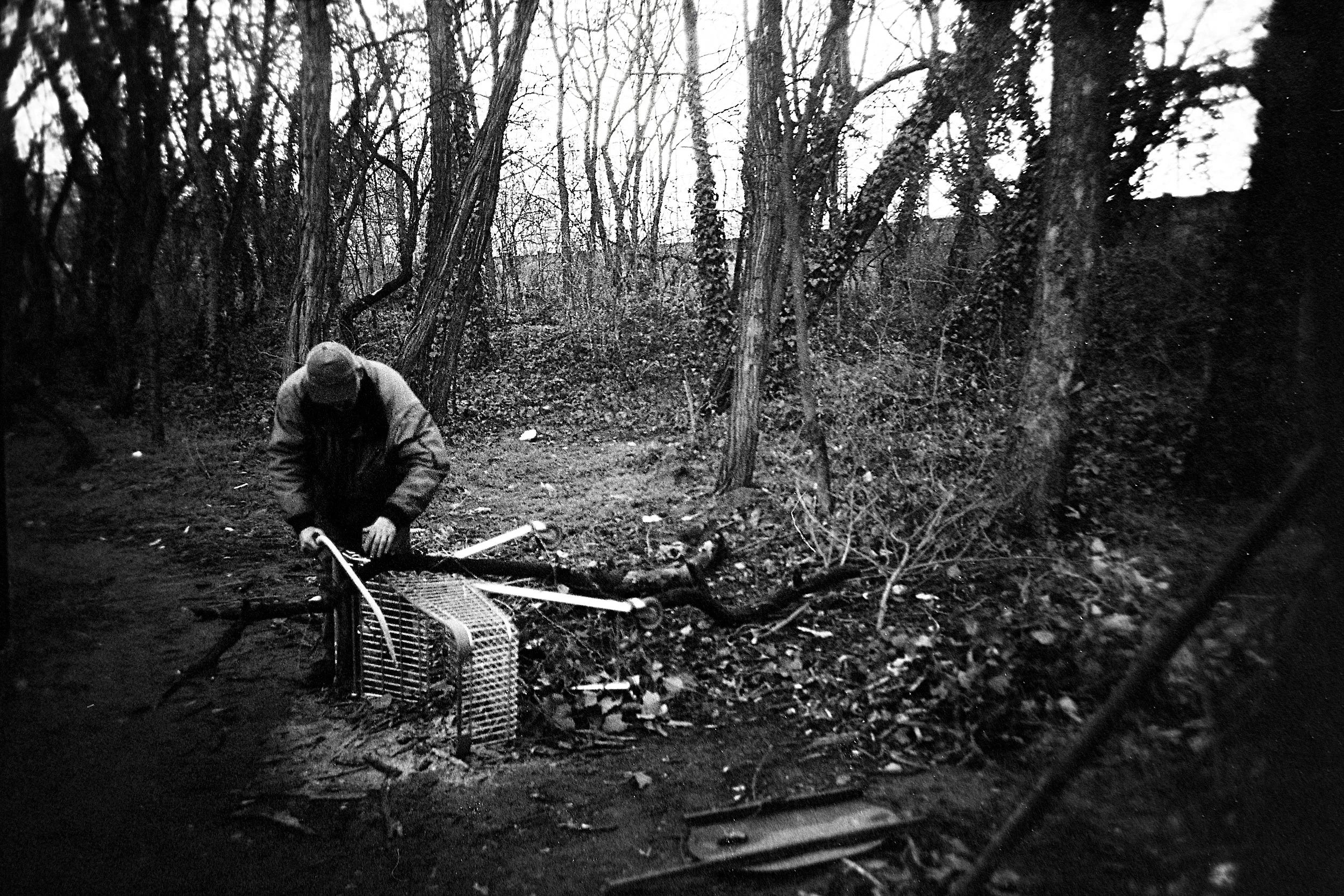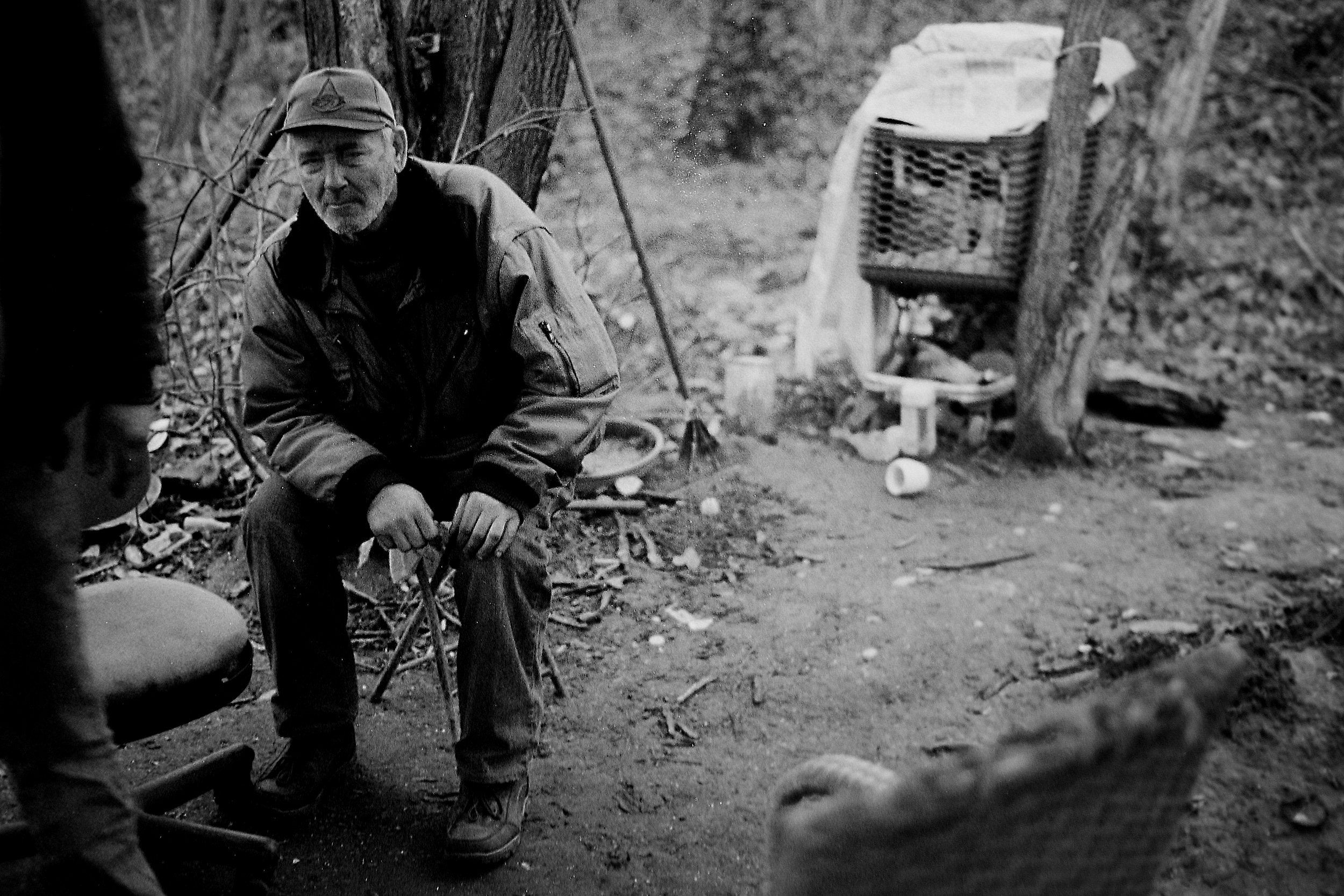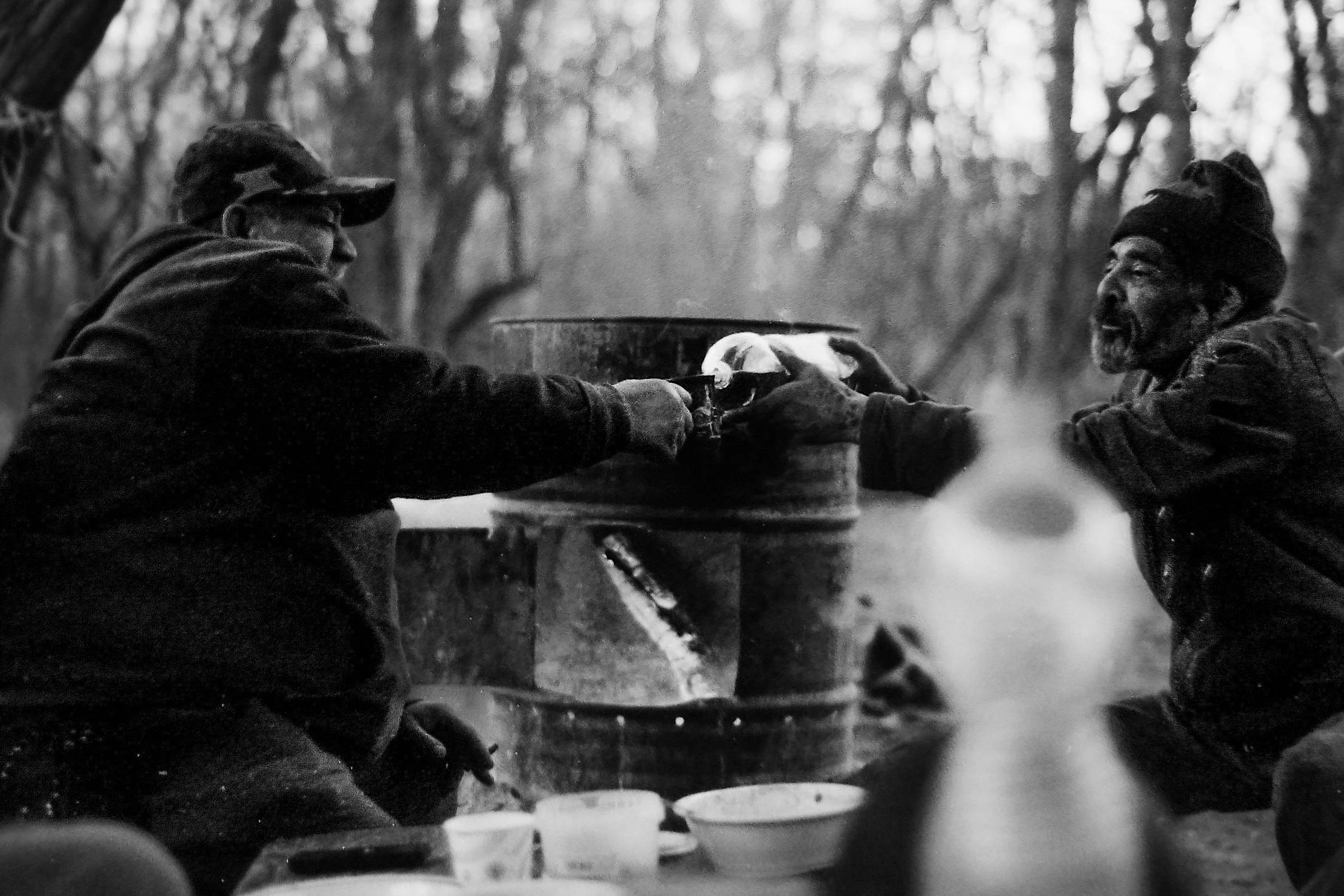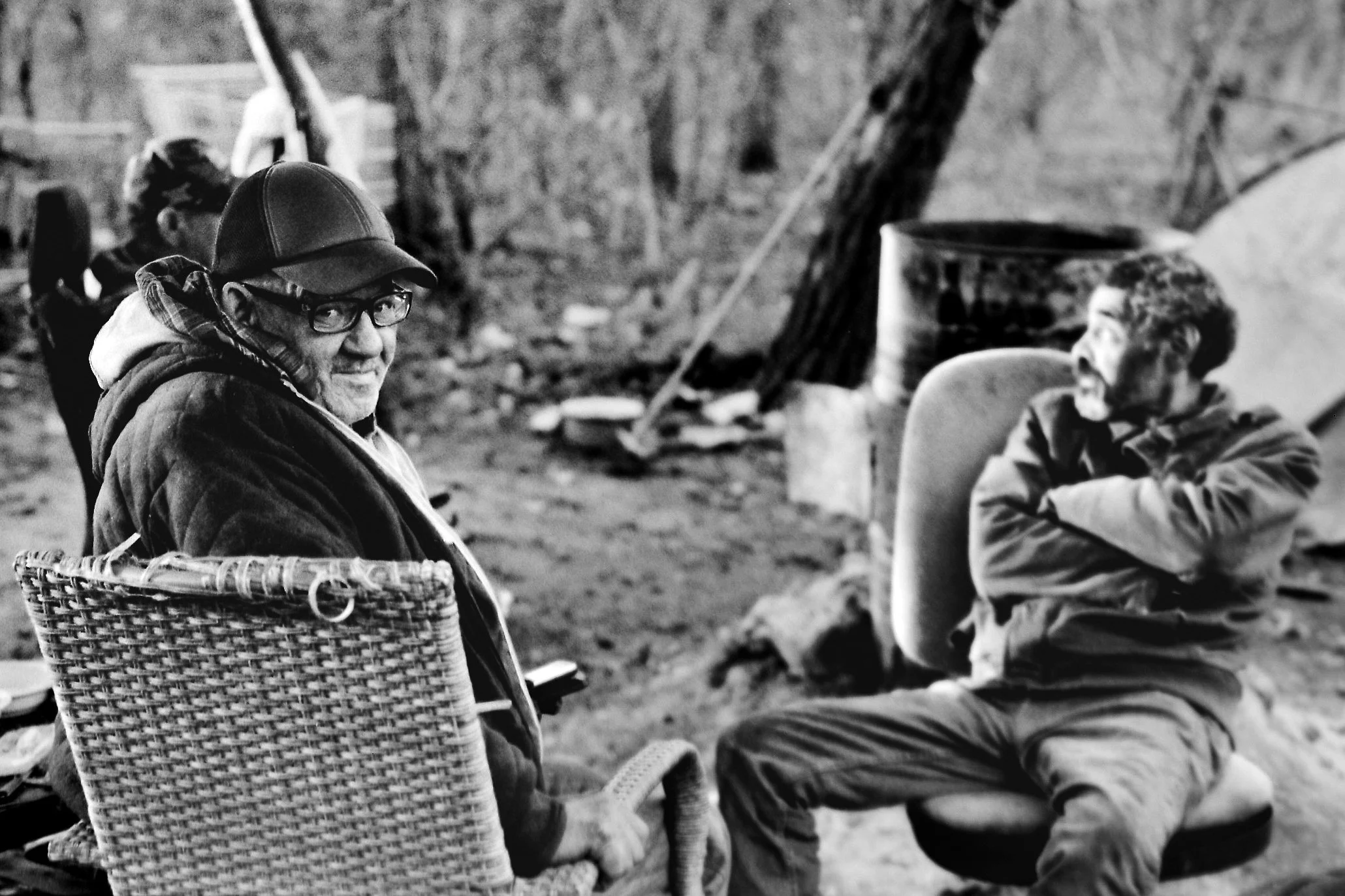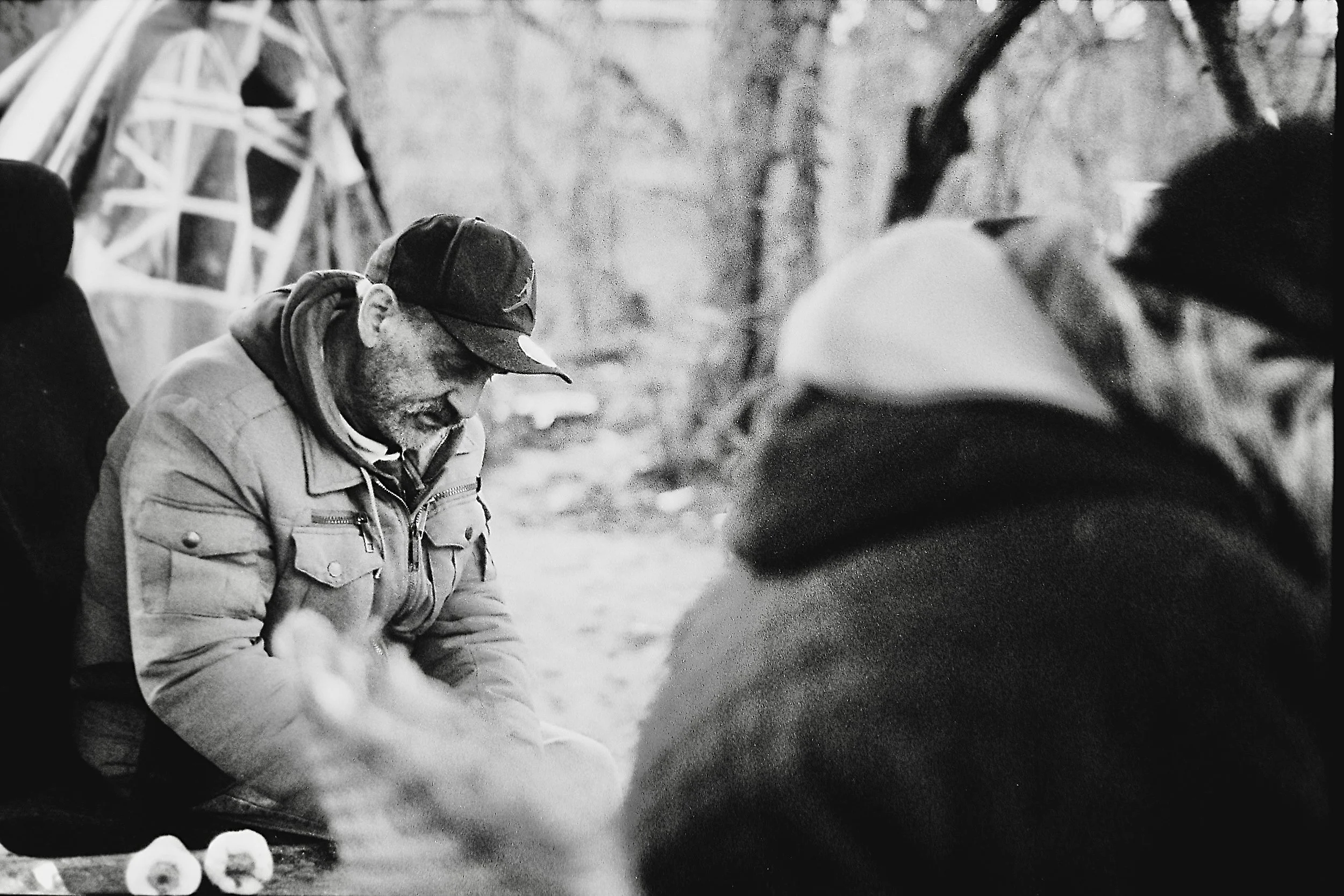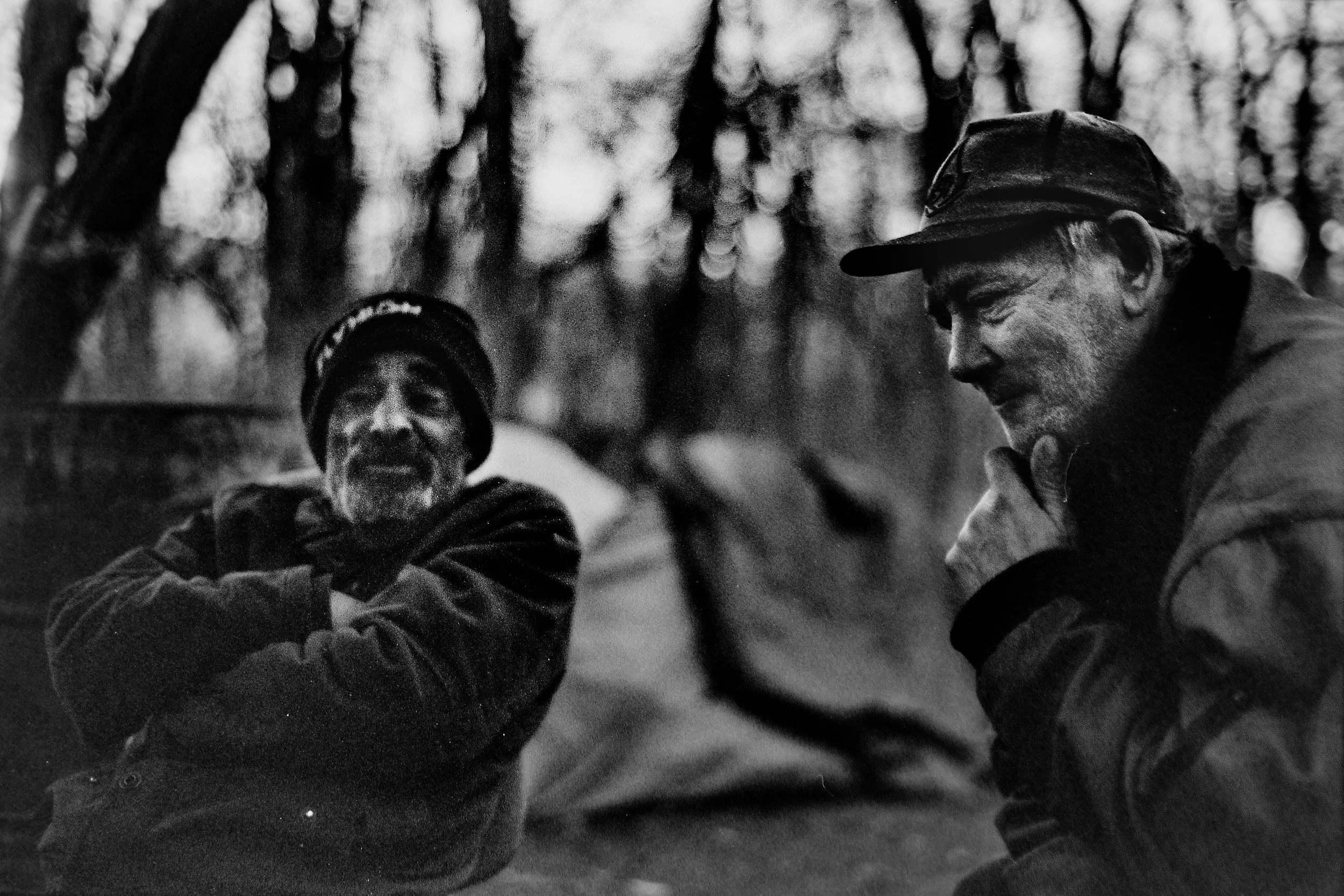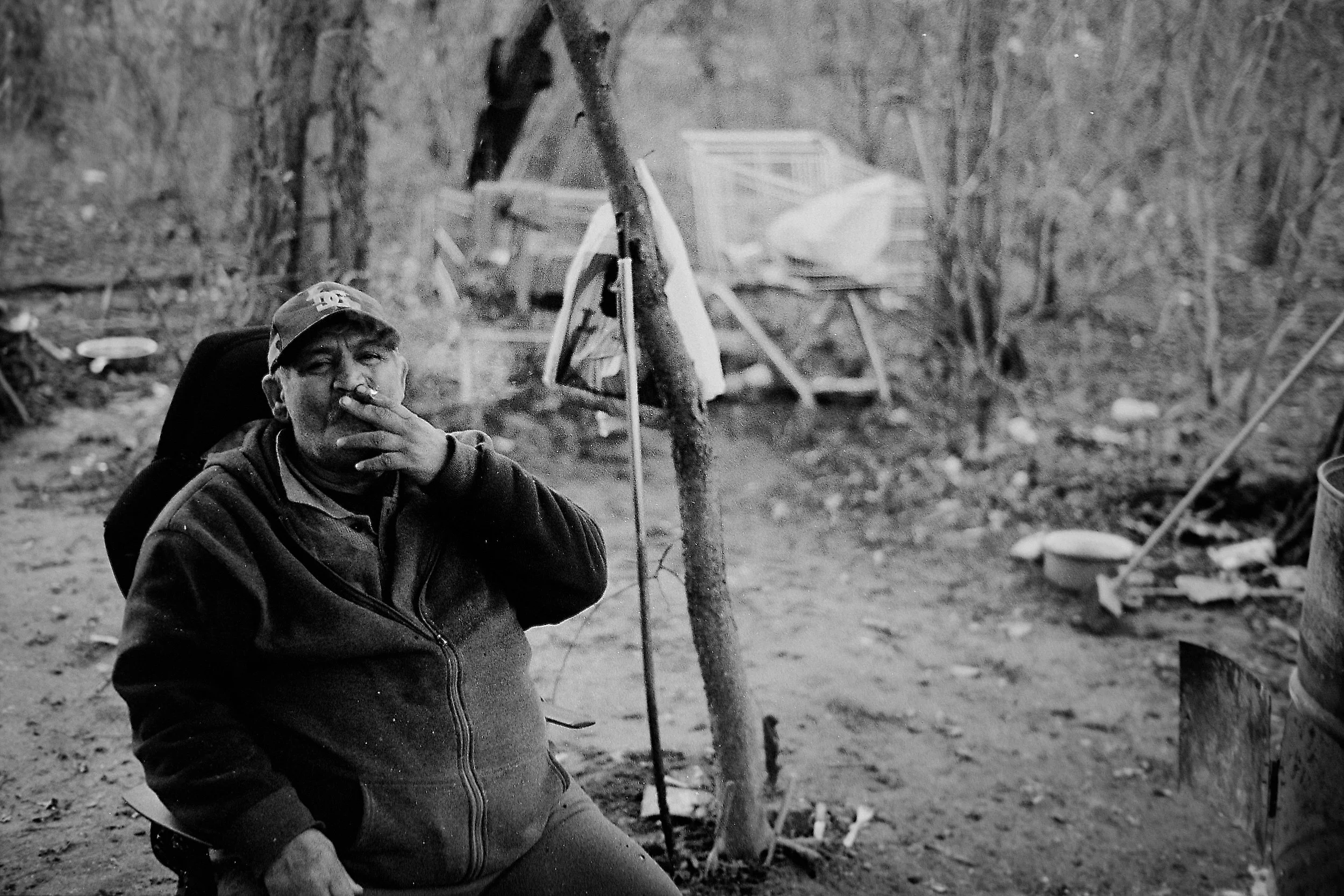Hidden from others
Together, yet alone | Photo essay from my project about five homeless men who living in the forest together
I passed them by many times. People with similar fates who had found each other, offering each other safety in a forest. I gave one of them a cigarette. I think it started with that.
This was my first photo what I took with my Yashica rangefinder camera. He asked me for a cigarette, and I said: “Yes, if I can take a photo of you”
They let me in so I could document their everyday life. From that time I randomly gone out to them in the forest. Mostly just speaking about all of our everyday lives. They hared his cigarettes with me and vice versa. Most of this time, I left my camera at home, but sometimes I carry my sound recorder for taking some interviews. Sometimes used it, and on other days not.I feel the thing to being together more important than the photos or the interviews. Just feeling good with together, no more. No more.
Their daily life is very simple, nothing really special happens. The Red Cross brings them a few canned goods, bread and mineral water once a month. They ask them how they are feeling and whether they need medical care. Almost all of them take medication. They have a special health card that allows them to get their medicine free of charge. They can only use this card for the medicines they take regularly. There is a pre-determined amount on this card, so sometimes in the second half of the month, if they run out of painkillers, for example, or if they get injured and need medicine that is not subsidised, they have to pay. But often they simply don't have the money.
They go to a nearby religious congregation once a week to wash themselves. In this case, one person stays there to guard the tents while the others are there, and then when they get back, the "guard" can also go and wash themselves. In this place they sometimes get some fruit and sometimes they can eat real cooked food.
Sometimes they find a few days of casual work for those who are physically better. Mostly on construction sites, where their job is to carry away the resulting construction debris for eight to ten hours a day. "It's hard physical work, but it's better than not having it at all. At least we'll have some money," says one of them, then adds: "It's best when two of us from the "family" can go to work. Then while we work, the stronger one helps the weaker one. That's how it should be in everyday life, isn't it?" he asks.
Their conversations mostly revolve around the above. Sometimes other homeless people join them, bringing them some cigarettes, rarely food, but alcohol is a constant gift and, as they say, medicine at the same time. One of them said he only drinks enough to cry. "I can't cry properly anymore. Do you understand that, my friend? I need this shit to feel like I used to, in the good old days. Damn it!"
One day I brought them a little surprise. I printed out a couple of photos taken earlier. They were as happy with the pictures taken of them as a child.
It was a fantastic feeling for me too. Such small joys are worth taking photos for. Not to mention that we can talk about their innermost secrets as if we’d known each other for a long time.
It doesn’t matter if they live in the forest or in a real apartment. If there is no openness to good in the soul, it does not matter whether a person has an apartment or not.
If there is no openness to good in the soul, it does not matter whether a person has an apartment or not.
The outsider sees only filth and terrible misery, but as a photographer, I’m supposed to show what we are afraid to see and don't want to notice - the shadowy but intimate side of life.
Almost everyone turns their eyes away and ignores them, which may even be simple psychological self-defense.
© Text and photos by Gergely Hando, 2025.


